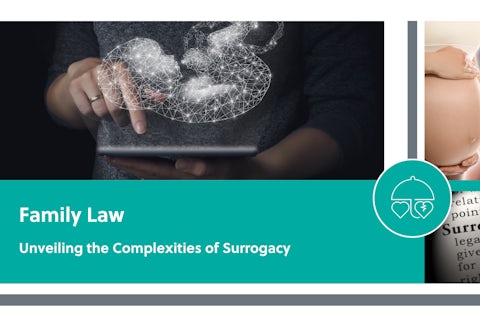Children
It is not uncommon for parents who separate to be worried or anxious about the effect this may have on their children. It is important for parents to remember that every child is different and will react in a different way to separation – there is no one size fits all.
It is important that, taking into account the children’s age and stage of development, that parents present a united front when dealing with any questions your children may have about the separation. It is also important that you explain, in an age-appropriate manner, what is happening and that it is not the child’s fault. Children need a healthy relationship with both parents and so it is important that you don’t discuss the other parent in a negative way in front of your children. Children should never feel guilty about wanting to spend time with the other parent. Keep the lines of communication open where possible.
Parental Rights And Responsibilities
Since the introduction of the Family Law (Scotland) 2006, unmarried fathers automatically have full parental rights and responsibilities if they are named as the child’s father on the birth certificate. Married fathers automatically have full parental rights and responsibilities. Parental rights and responsibilities include the right to make decisions regarding the child’s upbringing, their health, development and welfare, and to maintain a relationship with them.
Where neither of the above circumstances apply, it is still possible for a father to gain parental rights and responsibilities in relation to their child.
- A father can enter into a legally binding agreement with the mother granting parental rights and responsibilities to the father; or
- Apply to the court seeking an order granting them parental rights and responsibilities.
Residence
Residence is the legal term for which parent the child customarily lives with. For the most part, residence of children is simply agreed between the parents but there are times when it is not possible to reach agreement and that is where we can assist whether through mediation collaboration, traditional negation or litigation as a last resort.
Contact
The Scottish system promotes contact as a primary responsibility owed by a parent to a child. For the most part contact between separated parents will be settled by agreement. The welfare of the child is in all circumstances the paramount consideration. If arrangements cannot be agreed between you then we can assist in helping progress things through negotiation, mediation or litigation
Arrangement for contact and residence of children can be set out in a Minute of agreement. Such an agreement formalises the arrangement but does not have the same effect as a court order which will only be granted if it is absolutely necessary
Relocation
Following divorce or separation the change in the family dynamic can often mean that one parent wishes to relocate within the UK or sometimes further afield. This can be for a variety of reasons such as a new job or to be closer to family members. A move within the UK does not require the consent of the other parent but failure to consult and seek consent often results in the other parent seeking emergency orders through the court to stop the child being taken out of the jurisdiction or to secure their return.
Relocation outwith the UK requires the consent of the other parent. If consent is not forthcoming then a court will be required to make a decision. The order a parent requires to apply for to seek the court’s permission to relocate is called a “specific issue order.” Whether or not to grant a specific issue order allowing a parent to relocate is entirely at the discretion of the Sheriff hearing the case. The Sheriff’s paramount consideration is the welfare and best interests of the children and whether it is better for the children that the court makes the order than not. They are not required to consider any particular factors as having more weight than others, however there are certain factors that a Sheriff or Judge will look carefully at when making their decision, such as;
- The reasonableness of the proposed move.
- The motive of the parent wishing to relocate e.g. work/family support/education
- The importance of the contact with the other or absent parent in the children’s lives and what arrangement will practically be workable/maintained should relocation be granted.
- The importance of the children’s relationship with grandparents or other members of the child’s extended family who are left behind.
- The extent to which the children may gain from a relationship with your family members as a result of the proposed move.
- The children’s views, where they are of an age to express them.
- The effect generally of the move on the child.(schooling, social, housing etc)
- The effect of refusal of the specific issue order on the parent left behind eg. Career/economics, health & wellbeing
- The effect of refusal on the welfare of the children.
Whether it is better for the child to make the order than that no order should be made.
In relocation cases preparation is key, detailed information must be put before the court to demonstrate why the proposed move is in the children’s best interests. Information concerning potential schooling, accommodation, activities for the children, job offers or likely job prospects, standard of living, travel time and costs to visit the other parent are just some of the information a court will require to assist in determining whether the proposed move should be permitted.
International Aspects Of Family Law
Unfortunately, there can be situations where one parent either removes a child abroad or retains them abroad following a period of contact without the consent of the other parent. Many countries are signatories to The 1980 Hague Convention which was designed to protect children from the harmful effects of wrongful removal or retention and establish procedures to ensure the prompt return of abducted children to the State of their habitual residence. We can assist you in making the necessary application to have your child returned.
Fertility Law & Modern Families
These days it is not unusual for there to be modern family arrangements, whether that is through assisted conception, surrogacy or adoption. Whichever way you choose to achieve your family, early legal advice is imperative. There are different legal considerations such as inheritance, financial responsibility and legal parenthood and responsibility to take into account depending on the route you choose and we are well placed to advise you. Legal parenthood following assisted conception is governed by the Human Fertilisation and Embryology Act 2008.
Married heterosexual couples
The husband is regarded as the legal father of any child resulting from donor sperm, eggs or embryos, unless he clearly states that he does not consent to his wife’s treatment.
Unmarried heterosexual couples
Both the prospective mother and the man who intends to be legally recognised as the father, must consent in writing to what is intended before fertility treatment takes place.
Female same sex couple who are already married or civil partners
Where a child is conceived through assisted conception they will both automatically be treated as their child’s legal parents whether conception takes place through fertility treatment at a licensed clinic or through a private arrangement. The non-birth mother must consent to the conception.
Female same sex couples who are not civil partners or married
Where a child is conceived together through a HEFA licensed fertility clinic in the UK, they may also both be treated as legal parents. The non-birth , mother will be treated as the child’s other legal parent if both partners sign consent forms, before the date of conception, electing for the non-birth mother to be treated as a parent.
When non-civil partners or unmarried couples conceive outside a UK licensed clinic (for example by private arrangement at home) the non-birth mother will have no legal parenthood and will have to adopt the child to obtain parental rights.
Surrogacy
Surrogacy is where a surrogate mother carries a child on behalf of intended parents. One or both of the intended parents should have a genetic link to the child. Traditional surrogacy involves the surrogate mother’s egg being used, making her the genetic mother, fertilised by the intended father. Gestational surrogacy, involves the egg being provided by the intended mother or a donor, fertilised by the intended father.
Irrespective of whether traditional or gestational surrogacy is used, under Scottish law, the surrogate mother is the legal mother of a child at birth. If the surrogate is married or in a civil partnership, her spouse/civil partner is treated as the child’s second parent. If the surrogate is not married or in a civil partnership, the biological father will usually be treated as the child’s legal father.
After the child is born, the intended parents must apply to the Sheriff Court or Court of Session within six months of their child’s birth for a Parental order to be granted in order to obtain full parental status in respect of the child. Following the grant of a parental order, the child will be issued with a new birth certificate.
Whilst a solicitor cannot prepare a surrogacy agreement, if you are thinking about proceeding with Surrogacy, early legal input is required.








